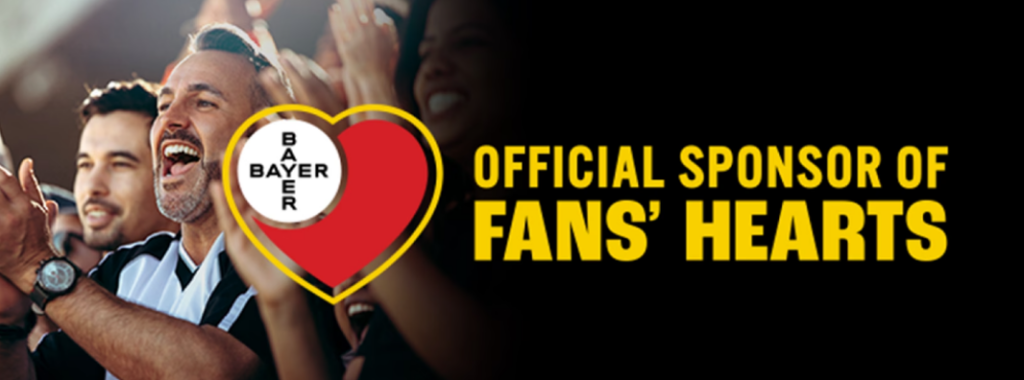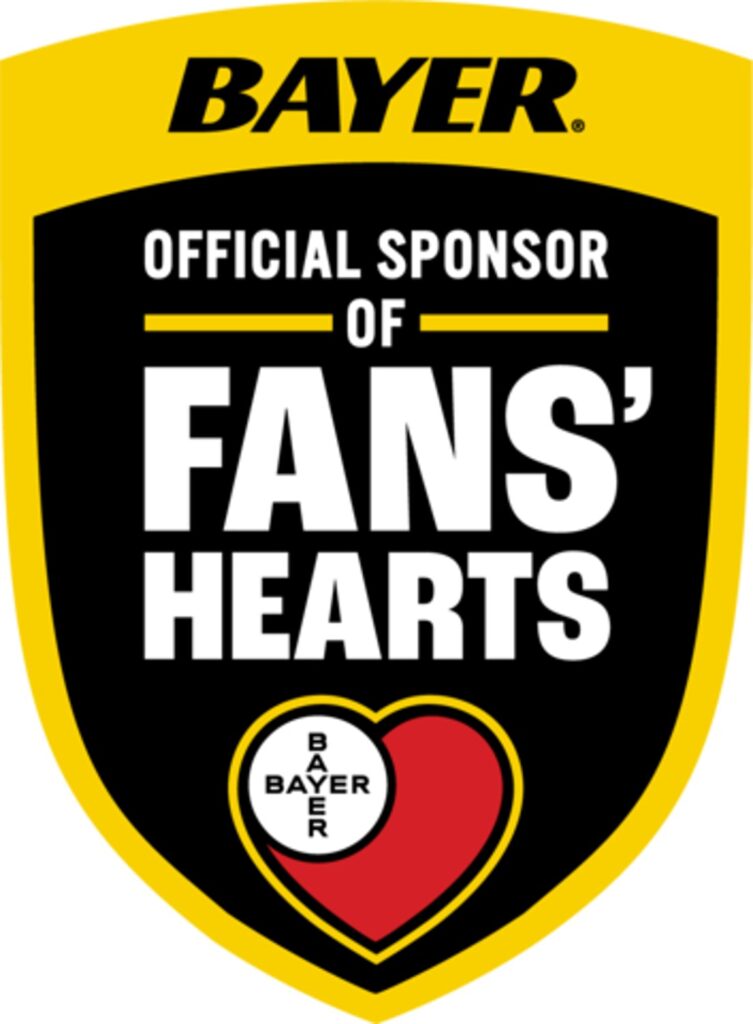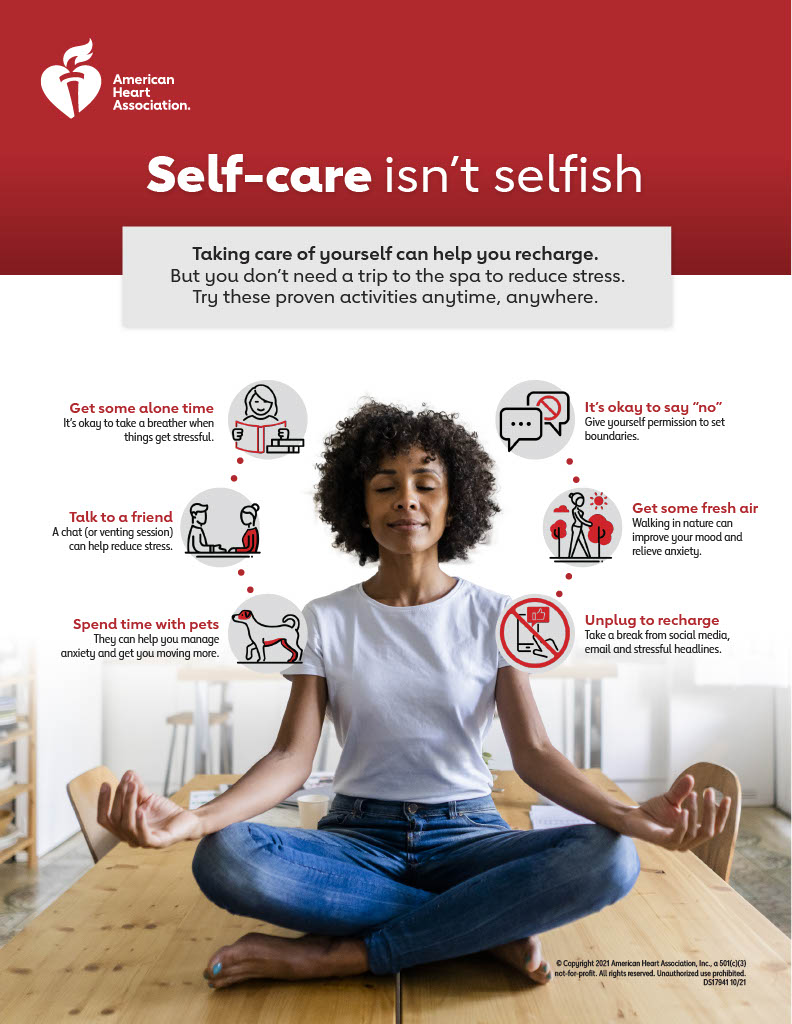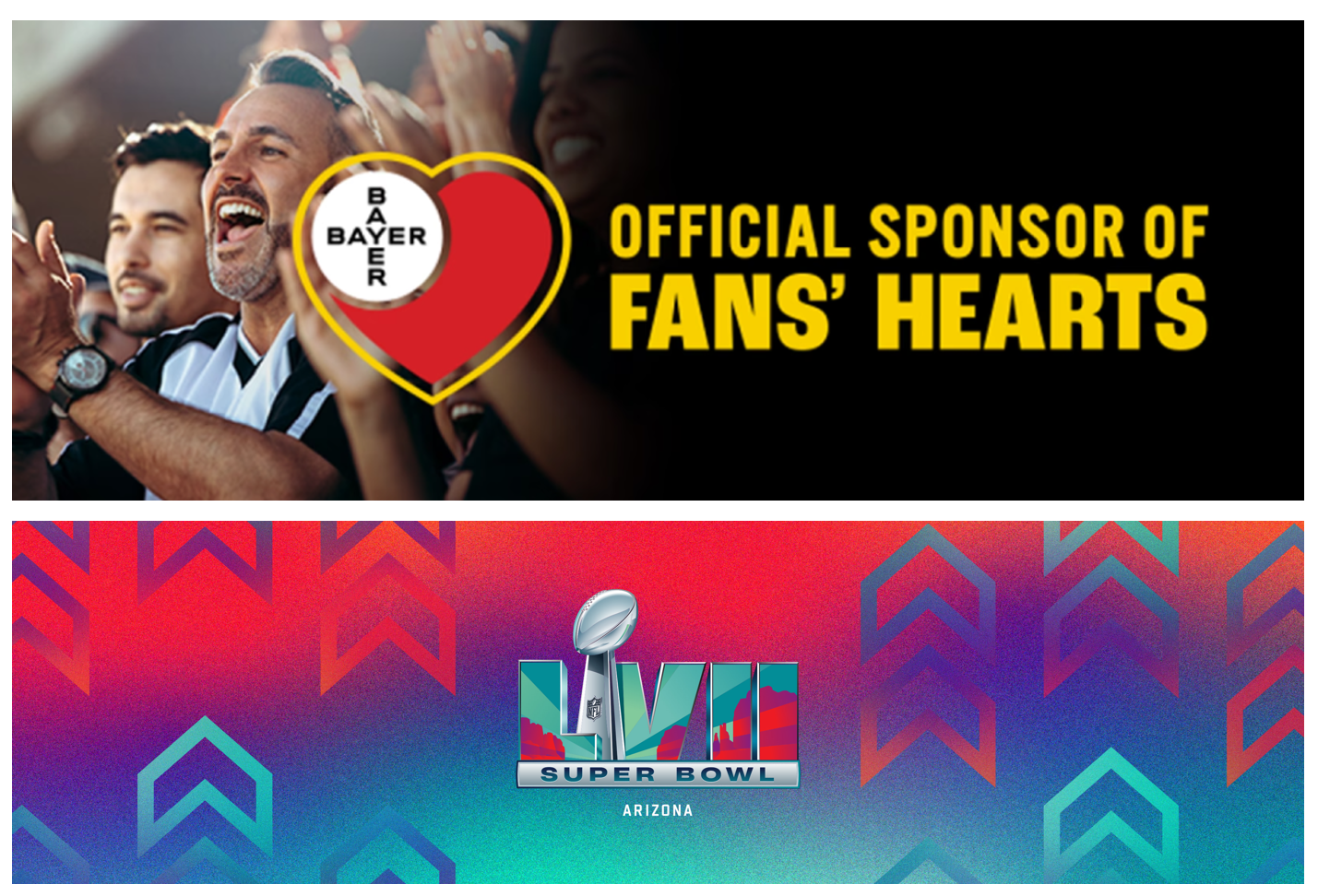Joke if you must about Big Game cuisine being typically packed with calories and fat and carbs….and as such, not-so-great for health.
For me, the ads are the attraction during The Big Game (along with the Philadelphia Eagles). In this year’s ad line-up, health will be featured in high-priced spots as it has for the past few years. Last year, I was intrigued by a female-focused 30-second spot from Hologic, educating viewers on cervical cancer, discussed here in Health Populi.

This year, my eyes are on Bayer Aspirin’s campaign “encouraging sports fans to keep their heart in the game” as the “Official Sponsor of Fans’ Hearts.”
This campaign is incredibly well-timed given that the rate of heart disease in the US has been increasing in the past few years after improving for decades. Heart disease remains the leading cause of death in America, accounting for one in every five deaths.

Bayer offers four recommendations for heart health self-care:
- Eat Right, packing a daily diet with fiber and low in saturated and trans fats.
- Stay Active, with the goal of getting at least 30 minutes of physical activity a few days a week – especially doing things you like to bolster fun and engagement (my go-to source on this is University of Michigan’s expert Michelle Segar of Don’t Sweat and The Joy Choice fame)
- Don’t Smoke – because smoking is a major risk factor for ill health for the heart and beyond; and,
- Reduce stress, because it damages linings of blood vessels and can lead to inflammation that is a risk for fat and cholesterol building up in your arteries.
So why a cardiac health education campaign during the Big Game LVII?
Last year, the Big Game had over 208 million viewers watching Game #LVI. according to Nielsen’s estimate including home viewers along with folks watching in bars and restaurants. That’s a lot of eyeballs and pairs of ears to watch and learn about heart health.
Bayer’s press release said that focusing on digital live sports, “capitalizes on the community of sports to empower fans with the accessible tools they need to keep their hearts in the game.”
Check out the Bayer Aspirin video here that you’ll see sometime during Super Bowl LVII (oh, and GO EAGLES!).

Health Populi’s Hot Points: Self-care isn’t selfish, the American Heart Association reminds us. There are many things we can do to lessen stress and take care of our hearts, some shown in the infographic from AHA.
These are evidence-based tactics that are free or inexpensive. While caring for pets isn’t cheap or free, our fur family (and other non-furry animal friends) can generate mental and physical health benefits. Caaring for pets — like walking your dog, which has lots of proof-points for healthy aging, for example — is a wonderfully engaging health-promoting activity, for mind, body, and spirit.
To further empower us on caring for our hearts, just-in-time on Valentine’s Day next week, a new book from Dr. John Whyte will be available titled Take Control of Your Heart Disease Risk.
Dr. Whyte is Chief Medical Officer at WebMD and a passionate advocate of self-care based on evidence-based approaches. His book is based on the fact that most heart disease is rooted in peoples’ lifestyle choices, so people have the power to shape their heart-health futures.
In terms of the consumer-facing heart-health ecosystem, in addition to Bayer’s 4 to-do’s listed above, there’s another DIY aspect to health care in our DIY ecosystem: monitoring blood pressure. Knowing one’s numbers can be a powerful, empowering thing.
And today’s consumer-facing blood pressure monitors aren’t your grandfather’s. They are increasingly digital and app-ified, helping you keep track without remembering in your head or meaning to write your readings down (but forgetting to). I’ve been tracking the evolution of this digital health technology for over a decade: a good example of that trajectory of digital heart tech for consumers comes from OMRON whose Connect app (which syncs with every one of the company’s connected BP monitors) recently garnered a TWICE Picks Award for best digital health service at CES 2023. I’m especially keen to see how the app’s “Community Features” will roll out later in 2023 which will allow OMRON Connect app users to join up, share experiences, and support each other. (Remember: health is social, and we can go farther, together).
Having had a father who managed heart health risks his whole life until he succumbed to heart failure at 86 years of age, I personally witnessed how those lifestyle decisions shaped his longevity and well-being. He was that role model for me, and so in the past several years, I’ve been monitoring my blood pressure pretty religiously. Doing so is a daily reminder for self-care and as AHA reminds us, not selfish at all. You do it as much for the people you love as for yourself.
Happy Big Game. Happy Valentine’s Day. Happy, Healthy You. (Oh, and did I say, “Go Eagles?!!”).





 Interviewed live on BNN Bloomberg (Canada) on the market for GLP-1 drugs for weight loss and their impact on both the health care system and consumer goods and services -- notably, food, nutrition, retail health, gyms, and other sectors.
Interviewed live on BNN Bloomberg (Canada) on the market for GLP-1 drugs for weight loss and their impact on both the health care system and consumer goods and services -- notably, food, nutrition, retail health, gyms, and other sectors. Thank you, Feedspot, for
Thank you, Feedspot, for  As you may know, I have been splitting work- and living-time between the U.S. and the E.U., most recently living in and working from Brussels. In the month of September 2024, I'll be splitting time between London and other parts of the U.K., and Italy where I'll be working with clients on consumer health, self-care and home care focused on food-as-medicine, digital health, business and scenario planning for the future...
As you may know, I have been splitting work- and living-time between the U.S. and the E.U., most recently living in and working from Brussels. In the month of September 2024, I'll be splitting time between London and other parts of the U.K., and Italy where I'll be working with clients on consumer health, self-care and home care focused on food-as-medicine, digital health, business and scenario planning for the future...